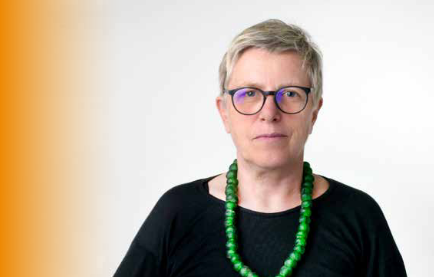Towards a framework for child and family welfare in Luxembourg
Key issues and future orientations: Children’s rights, participation, inclusion
Julia Jäger, Ulla Peters, 17.12.20
On November 10, 2020, the Ministère de l’Éducation nationale, de l’Enfance et de la Jeunesse (MEN), in cooperation with ANCES (Association nationale des communautés éducatives et sociales asbl) and FEDAS Lëtzebuerg (Fédération des acteurs du secteur social au Luxembourg asbl), launched a consultation process with the aim of developing a national reference framework for child and youth welfare in Luxembourg.
Accompanied by a newly established “AEF Social Lab”, experiences of professionals and stakeholders and beneficiaries in the field of AEF (Aide à l’Enfance et à la Famille) and of actors in related fields (e.g. health, education, justice) are to be evaluated for one year and used for the reorientation of AEF. The description of objectives and principles will provide a framework for quality assurance, similar to the 2018 national reference framework for non-formal education.
In the Ministry’s “Synthesis Kick-Off Webinar” report, the results of the first event are summarized under the headings of strengths and needs for improvement, and future topics were prioritized.
Key concerns identified were:
- Strengthening cooperation between services and sectors, working on interfaces
- Take greater account of the interests, rights and strengths of children, young people and their families, especially in residential care
- Intensify social-spatial prevention.
The following questions arise for us:
- How open-ended is the participation process? What guides the organizing actors, MEN, ANCES, FEDAS? Which professional ideas, values and interests are structuring this process?
- What contribution can SOP make?
- To what extent can previous results and elaborations of the University of Luxembourg (Peters & Jäger 2013, Peters & Jäger 2015) be used?
- Are experiences about what good practice in AEF exists so far visible, evaluated and used in the process?
- How is the framework implemented and accompanied, how is a process of quality assurance envisioned? To what extent can the experiences from non-formal education and (already partially implemented) ideas on a participatory quality process be an inspiration?
In the report of the kick-off meeting we find a hint of an answer to the first question. The authors use the model “My World Triangle” (from the national strategy GIRFEC in Scotland) to systematize the aspects mentioned below. At the centre is the child’s (best) interest with three dimensions: How does a child grow up and develop? What does a child need from the people who care for him? What is significant in his or her extended world?
From our point of view, a stronger explicit reference to already existing international and national frameworks (Loi AEF, UN Convention on the Rights of the Child, UN Convention on the Rights of Persons with Disabilities, …) could be helpful to guide the development process.
Looking at the themes mentioned in the short report, we see some points of connection for SOP (question 2) and a way of working aligned with it. The first nine (out of 20) aspects prioritized for the future seem to be connectable for central thoughts and methods of safety-oriented approaches. They are: Participation, (early) prevention, needs of the child, networking and cooperation, work with parents, concepts for child protection, transparency and exchange, training.
SOP could be a common professional framework and enable a language that is focused on child welfare and family and shared across professions and sectors. In this way, the setting of goals und planning of interventions could be transparent and comprehensible. With SOP’s focus on social resources and the extended family network, (family and other) relationships of children could be protected and strengthened. The importance of family would be promoted, also in context of care under legal coercion (aide sous contrainte). At the same time, a professional framework for qualification and training of personnel would be created.
And what can we say about questions 3, 4 and 5? The University of Luxembourg (Institute for Social Research and Interventions, ISI) will accompany the process reflectively and in relation to the findings and elaborations of the past years.
Literature
Peters, Ulla, Jäger, Julia A. (2013). Qualität in der Heimerziehung, Standards für die stationären Einrichtungen in der Kinder- und Jugendhilfe. Luxembourg: Ministère de la Famille et de l’Intégration.
Peters, Ulla, Jäger, Julia A. (2015). Eine Bilanz zur Gesetzesreform Aide à l’Enfance et à la Famille (AEF). Universität Luxemburg: Luxemburg.

Ulla Peters
The reform of child and family welfare (AEF) and the protection of youth (PJ)
> READEric Sulkers on SOP
> READ
Katja Berg
> TO THE ARCHIVE

